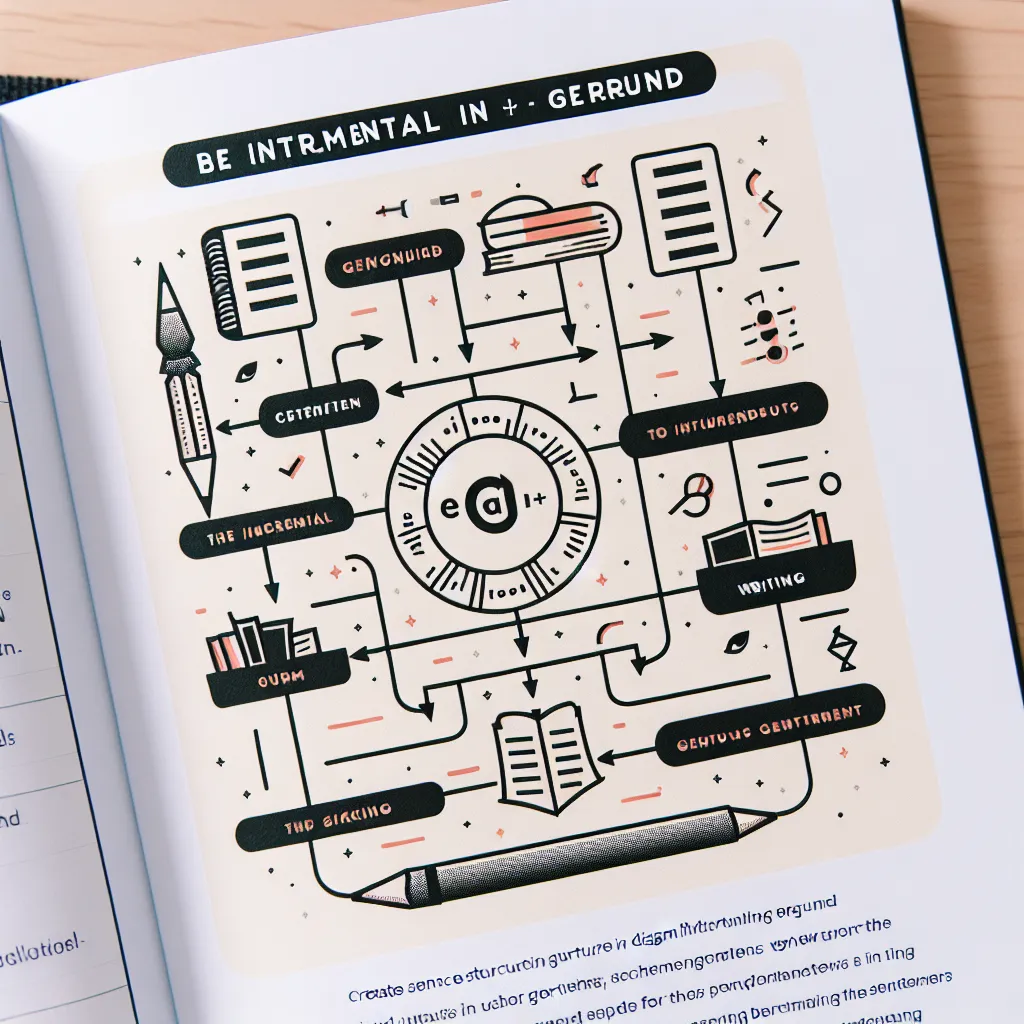The phrase “be instrumental in + gerund” is a powerful and sophisticated construction that can significantly elevate your IELTS score when used correctly. This structure is particularly valuable in the Writing and Speaking sections of the test, where showcasing advanced language skills is crucial. Let’s delve into the intricacies of this phrase and explore how to leverage it effectively in your IELTS preparation.
Understanding “Be Instrumental in + Gerund”
The phrase “be instrumental in + gerund” is used to emphasize the significant role or influence that someone or something has in bringing about a particular result or action. It’s a formal expression that demonstrates a high level of English proficiency, making it ideal for use in IELTS tasks.
Formula: Subject + be + instrumental + in + gerund (verb + -ing)
Examples:
- The scientist was instrumental in developing the new vaccine.
- Social media has been instrumental in shaping public opinion.
- Her research was instrumental in advancing our understanding of climate change.
- The government’s policies were instrumental in reducing unemployment rates.
- The new technology is instrumental in improving patient care in hospitals.

Applying “Be Instrumental in + Gerund” in IELTS Tasks
IELTS Writing Task 2
In Writing Task 2, using this structure can help you express complex ideas about cause and effect, influence, or importance. It’s particularly useful when discussing societal changes, technological advancements, or policy impacts.
Example paragraph:
“Governments have been instrumental in promoting environmental awareness through various initiatives. By implementing strict regulations and launching public education campaigns, they have been instrumental in changing citizens’ attitudes towards sustainability. Moreover, international cooperation has been instrumental in addressing global environmental challenges, demonstrating the power of collective action in tackling complex issues.”
IELTS Speaking Part 3
In the Speaking test, particularly in Part 3 where more abstract and complex ideas are discussed, this phrase can showcase your ability to express sophisticated concepts fluently.
Example response to “How has technology changed education?”:
“Technology has been instrumental in revolutionizing the educational landscape. It has been instrumental in providing access to a wealth of information at our fingertips, which has been instrumental in enhancing students’ research capabilities. Furthermore, online platforms have been instrumental in facilitating remote learning, which was instrumental in ensuring educational continuity during the recent global pandemic.”
Enhancing Your IELTS Score with Advanced Structures
To achieve a higher band score in IELTS, it’s crucial to demonstrate a range of complex grammatical structures. “Be instrumental in + gerund” is one such structure that can help you reach Band 7 and above. Here’s how you can use it effectively:
-
Vary your sentence structures: Don’t overuse this phrase. Mix it with other advanced structures for a more natural flow.
-
Use appropriate synonyms: Instead of always using “instrumental,” consider synonyms like “crucial,” “vital,” or “key” in similar structures.
-
Extend the phrase: For even more complexity, try “be instrumental in + gerund + object + prepositional phrase.”
Example: “The new policy was instrumental in reducing carbon emissions by a significant margin.” -
Combine with other advanced structures:
Example: “Not only was the discovery instrumental in advancing medical research, but it also paved the way for innovative treatments.”
Common Mistakes and How to Avoid Them
-
Incorrect verb form: Using an infinitive instead of a gerund.
Incorrect: The program was instrumental in to reduce poverty.
Correct: The program was instrumental in reducing poverty. -
Misusing prepositions:
Incorrect: They were instrumental for achieving the goal.
Correct: They were instrumental in achieving the goal. -
Overuse: While it’s a powerful structure, using it too frequently can make your writing or speaking seem repetitive and unnatural.
-
Inappropriate context: This phrase is formal and best suited for academic or professional contexts. Using it in casual conversation might sound unnatural.
-
Forgetting to complete the phrase:
Incomplete: The teacher was instrumental.
Complete: The teacher was instrumental in motivating students to excel.
Conclusion
Mastering the “be instrumental in + gerund” structure can significantly enhance your IELTS performance, particularly in the Writing and Speaking sections. By incorporating this phrase naturally and accurately, you demonstrate a sophisticated command of English, which is key to achieving a high band score. Remember to practice using this structure in various contexts related to common IELTS topics such as education, technology, environment, and social issues. As you prepare, challenge yourself to use this phrase in your practice essays and speaking responses, always ensuring it fits naturally within your overall argument or discussion.
For further practice, consider exploring how this structure can be applied to other IELTS topics like urbanization, globalization, or cultural preservation. By doing so, you’ll not only improve your grasp of this particular phrase but also expand your overall ability to express complex ideas in English.
To learn more about advanced language structures and how they can boost your IELTS score, check out our article on how AI is transforming wildlife conservation efforts, which provides excellent examples of sophisticated language use in an academic context.